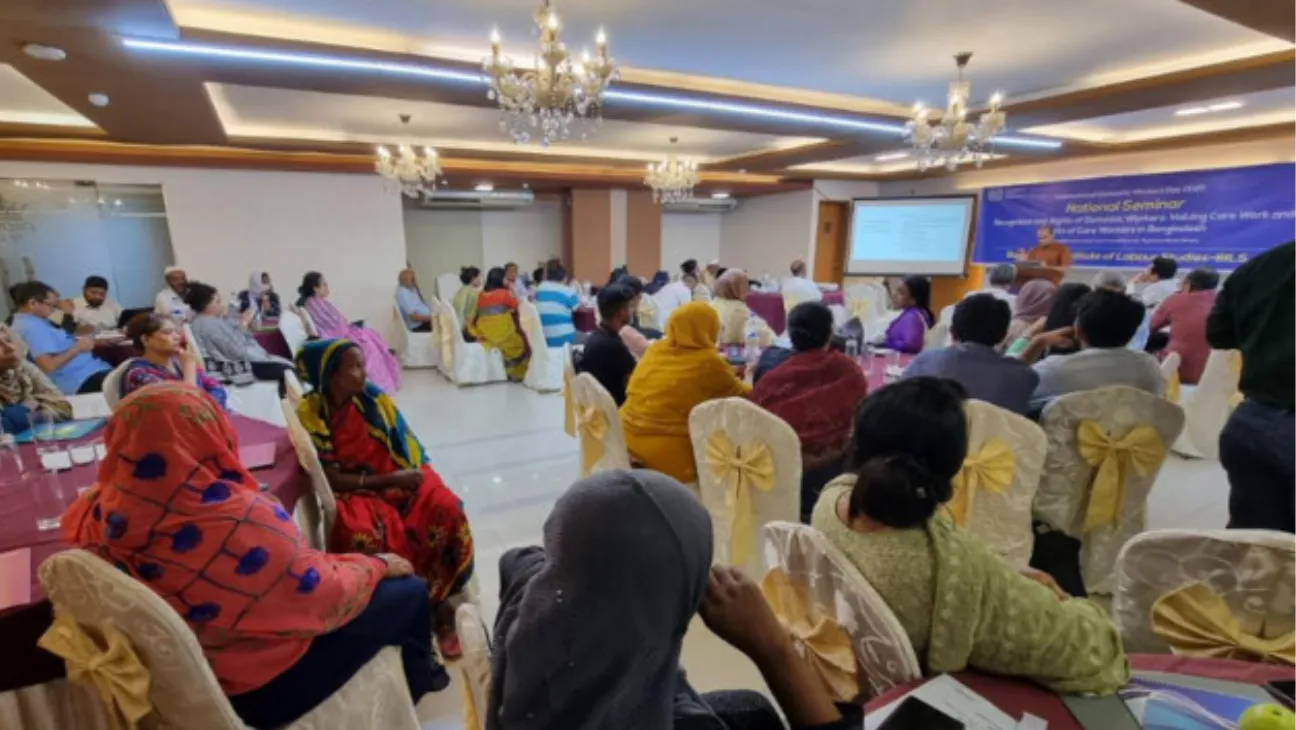Speakers at a Dhaka seminar on Sunday warned that the biggest hurdle to protecting domestic workers in Bangladesh is the lack of legal recognition for their rights.
They argued that without a national law to enforce fair treatment and safety, any efforts to help these workers will ultimately fall short.
The event, titled “Recognition and Rights of Domestic Workers: Valuing Care Work and the Rights of Care Workers in Bangladesh”, was jointly organized by the Bangladesh Institute of Labour Studies (BILS) and the International Labour Organization (ILO).
Syed Sultan Uddin Ahmed, who leads the Labour Reform Commission and also heads BILS, said legal status is central to improving conditions.
“Recognition and legal protection are essential. Without these, it will not be possible to ensure the rights of domestic and other workers,” he said.
The session featured a presentation from Saiduzzaman Mithu, senior programme officer at BILS, who outlined the current situation for domestic workers and introduced recent advocacy efforts, including the Care Workers Rights Protection Forum.
Mithu’s data pointed to ongoing challenges: informal employment, lack of benefits, and absence of any enforceable contract system.
Mostafiz Ahmed, an associate professor at Jagannath University, presented findings from a study conducted under the ILO-BILS Care Work Project.
He highlighted a critical disconnect between policy and practice.
“Domestic workers are still excluded from existing labor laws,” he noted. “And our current framework falls short of international standards.”
He called for a comprehensive national policy to close the gaps, along with public education to shift prevailing social attitudes.
Despite some decrease in reported incidents of violence, speakers said many domestic workers still face abuse.
Attendees shared personal accounts. Some described emotional distress from repeated verbal mistreatment. Others said arriving late for work, even once, often led to punishment.
Labor leaders echoed those concerns.
Shakil Akhter Chowdhury of the Bangladesh Labour Federation and Nailul Ahsan Jewel of the National Labour Alliance both called for urgent reform.
In the end, the speakers said everyone needs to get on the same page—the government, advocacy groups, and the people who hire domestic help.
But they put it bluntly: until society stops seeing these individuals as just “helpers” and starts treating them like actual workers who have rights, all this talk about progress is just talk.









